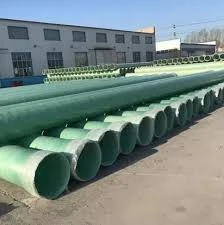
-
 Afrikaans
Afrikaans -
 Albanian
Albanian -
 Amharic
Amharic -
 Arabic
Arabic -
 Armenian
Armenian -
 Azerbaijani
Azerbaijani -
 Basque
Basque -
 Belarusian
Belarusian -
 Bengali
Bengali -
 Bosnian
Bosnian -
 Bulgarian
Bulgarian -
 Catalan
Catalan -
 Cebuano
Cebuano -
 China
China -
 China (Taiwan)
China (Taiwan) -
 Corsican
Corsican -
 Croatian
Croatian -
 Czech
Czech -
 Danish
Danish -
 Dutch
Dutch -
 English
English -
 Esperanto
Esperanto -
 Estonian
Estonian -
 Finnish
Finnish -
 French
French -
 Frisian
Frisian -
 Galician
Galician -
 Georgian
Georgian -
 German
German -
 Greek
Greek -
 Gujarati
Gujarati -
 Haitian Creole
Haitian Creole -
 hausa
hausa -
 hawaiian
hawaiian -
 Hebrew
Hebrew -
 Hindi
Hindi -
 Miao
Miao -
 Hungarian
Hungarian -
 Icelandic
Icelandic -
 igbo
igbo -
 Indonesian
Indonesian -
 irish
irish -
 Italian
Italian -
 Japanese
Japanese -
 Javanese
Javanese -
 Kannada
Kannada -
 kazakh
kazakh -
 Khmer
Khmer -
 Rwandese
Rwandese -
 Korean
Korean -
 Kurdish
Kurdish -
 Kyrgyz
Kyrgyz -
 Lao
Lao -
 Latin
Latin -
 Latvian
Latvian -
 Lithuanian
Lithuanian -
 Luxembourgish
Luxembourgish -
 Macedonian
Macedonian -
 Malgashi
Malgashi -
 Malay
Malay -
 Malayalam
Malayalam -
 Maltese
Maltese -
 Maori
Maori -
 Marathi
Marathi -
 Mongolian
Mongolian -
 Myanmar
Myanmar -
 Nepali
Nepali -
 Norwegian
Norwegian -
 Norwegian
Norwegian -
 Occitan
Occitan -
 Pashto
Pashto -
 Persian
Persian -
 Polish
Polish -
 Portuguese
Portuguese -
 Punjabi
Punjabi -
 Romanian
Romanian -
 Russian
Russian -
 Samoan
Samoan -
 Scottish Gaelic
Scottish Gaelic -
 Serbian
Serbian -
 Sesotho
Sesotho -
 Shona
Shona -
 Sindhi
Sindhi -
 Sinhala
Sinhala -
 Slovak
Slovak -
 Slovenian
Slovenian -
 Somali
Somali -
 Spanish
Spanish -
 Sundanese
Sundanese -
 Swahili
Swahili -
 Swedish
Swedish -
 Tagalog
Tagalog -
 Tajik
Tajik -
 Tamil
Tamil -
 Tatar
Tatar -
 Telugu
Telugu -
 Thai
Thai -
 Turkish
Turkish -
 Turkmen
Turkmen -
 Ukrainian
Ukrainian -
 Urdu
Urdu -
 Uighur
Uighur -
 Uzbek
Uzbek -
 Vietnamese
Vietnamese -
 Welsh
Welsh -
 Bantu
Bantu -
 Yiddish
Yiddish -
 Yoruba
Yoruba -
 Zulu
Zulu
High-Quality Fiberglass Sewer Pipe Solutions
The Advantages of Fiberglass Sewer Pipes
In the realm of civil engineering and infrastructure development, sewer systems play a crucial role in maintaining public health and environmental safety. Traditionally, sewer pipes have been made from materials like clay, concrete, and PVC. However, the introduction of fiberglass sewer pipes has revolutionized the industry, offering numerous benefits that make them an attractive option for modern construction projects.
Fiberglass sewer pipes are composed of a composite material that combines glass fibers with resin, resulting in a lightweight and durable product. One of the primary advantages of fiberglass pipes is their resistance to corrosion and chemical damage. Unlike traditional materials, fiberglass can withstand harsh environmental conditions and aggressive chemicals commonly found in wastewater. This resilience prolongs the life of the pipes, reducing the need for frequent replacements and costly repairs.
Another significant benefit of fiberglass sewer pipes is their flexibility. This attribute allows them to accommodate ground movements and shifts without cracking or breaking. In areas prone to earthquakes or subsidence, the ability of fiberglass to flex under pressure can be critical for maintaining the integrity of the sewer system. Additionally, the lightweight nature of fiberglass pipes simplifies the installation process, as they require less heavy machinery and labor compared to their concrete counterparts.
fiberglass sewer pipe

The smooth interior surface of fiberglass sewer pipes is another factor that enhances their appeal. A smooth lining reduces friction, allowing wastewater to flow more efficiently. This improved hydraulic performance can lead to lower energy costs for pumping and reduced risk of blockages over time. The streamlined design also minimizes the accumulation of debris and sediment, thus ensuring a more reliable sewer system.
Environmentally, fiberglass sewer pipes are favorable due to their lower overall carbon footprint during manufacturing and installation. The materials used in fiberglass are often sourced from recycled products, thus promoting sustainability. Moreover, the longevity and durability of these pipes contribute to a decrease in waste, making them an environmentally responsible choice.
Furthermore, the installation of fiberglass sewer pipes can result in significant cost savings over time. Although the initial investment may be higher than that of traditional pipes, the long-term benefits, including reduced maintenance costs, lower energy consumption, and minimized risk of failure, often offset these upfront expenses. The combination of durability, minimal maintenance needs, and operational efficiency makes fiberglass pipes a financially sound investment for municipalities and private developers alike.
In conclusion, fiberglass sewer pipes offer a range of advantages that make them a superior choice in modern sewer systems. Their resistance to corrosion, flexibility, smooth flow characteristics, and environmental benefits present compelling reasons for their growing popularity. As infrastructure demands continue to evolve, embracing innovative materials like fiberglass will be essential to keeping systems reliable, efficient, and sustainable for future generations. The shift towards fiberglass sewer pipes is not just a trend; it is a step towards building a more resilient infrastructure.
Latest news
-
Exploring the Benefits of Top Hammer Drifter Rods for Enhanced Drilling PerformanceNewsJun.10,2025
-
High-Precision Fiberglass Winding Machine for GRP/FRP Pipe Production – Reliable & Efficient SolutionsNewsJun.10,2025
-
FRP Pipes & Fittings for Shipbuilding - Corrosion-Resistant & LightweightNewsJun.09,2025
-
Premium FRP Flooring Solutions Durable & Slip-ResistantNewsJun.09,2025
-
Premium Fiberglass Rectangular Tanks Durable & Lightweight SolutionNewsJun.09,2025
-
Tapered Drill String Design Guide Durable Performance & UsesNewsJun.09,2025









